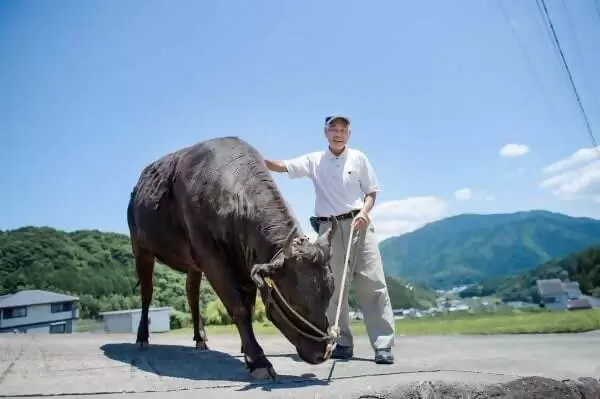Imabari City and Zero-Emission Ships: The Future of Japan's Maritime Hub and the Legacy of the Murakami Kaizoku

Imabari City is the largest maritime city in Japan, and is leading the way in the development of zero-emission ships and the environmentally friendly future of the shipping industry. It is a fascinating city where tradition and innovation come together, along with the history of the Murakami Kaizoku, a Japanese Heritage site.
What kind of place is Imabari City, Ehime Prefecture?
Imabari City in Ehime Prefecture is Japan's largest maritime city and has played a major role in its history and industry.
In recent years, this city, which has a thriving shipbuilding industry, has been developing environmentally friendly "zero-emission ships" to build a future that supports a sustainable shipping industry. Along with this progress, the legend of the Murakami pirates, which is rooted in the historical background of Imabari, is also being reevaluated, leading to tourism and regional revitalization. In this article, we will take a closer look at the zero-emission ships that are shaping the future of Imabari and the history of the Murakami pirates.
-
Table of Contents
- Imabari City and the Future of Zero-Emission Ships
- Historical background of the Murakami pirates and Imabari city
- Imabari City: A city that will lead the future of the shipping industry while preserving its historical culture
Imabari City and the Future of Zero-Emission Ships
Imabari City has developed around the shipbuilding industry for many years. This area, home to many shipyards including Imabari Shipyard, is constantly seeking new technology and innovation. In particular, "zero-emission ships" have been attracting attention as a measure against global warming. Zero-emission ships are ships that do not emit carbon dioxide (CO2) and use alternative fuels such as ammonia and hydrogen.
Imabari Shipbuilding, headquartered in Imabari City, is developing ships that use ammonia as their main fuel, accelerating the decarbonization of the shipping industry. Demand for zero-emission ships is expected to surge in the future to comply with new environmental regulations introduced by the European Union (EU) and other countries. In response, Imabari City is expanding its shipbuilding docks, preparing to manufacture the next generation of environmentally friendly ships, and working toward achieving carbon neutrality by 2050.
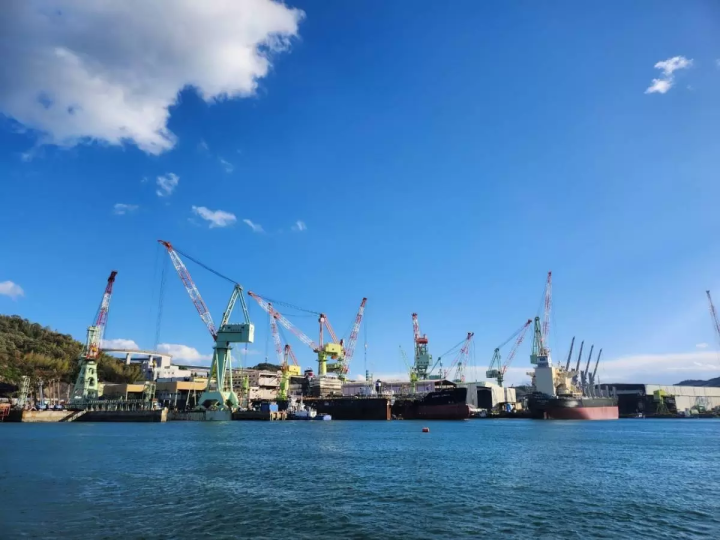
A view of shipbuilding companies from Hashihama Port
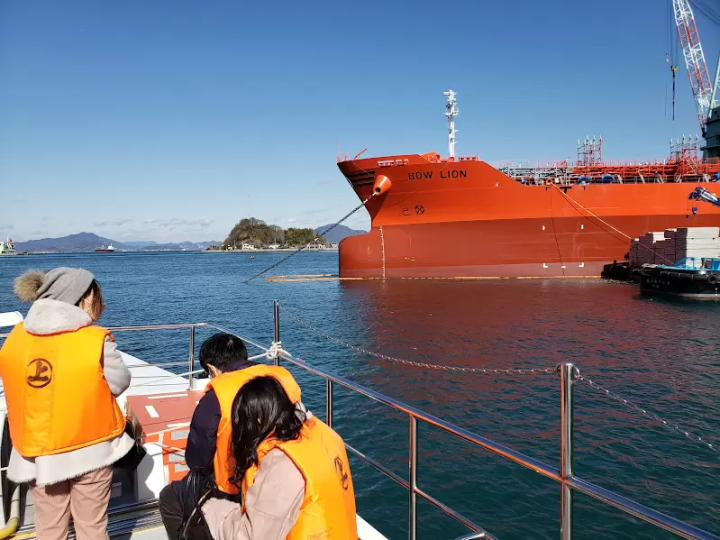
Historical background of the Murakami pirates and Imabari city
Imabari City's appeal is not limited to its shipbuilding industry. The city is also steeped in the legend of the Murakami Kaizoku, a pirate force active during the Sengoku period. The Murakami Kaizoku were based in the Murakami family, which was located near Imabari City, and became famous for their naval battles. They dominated the Seto Inland Sea at the time, and excelled in shipbuilding technology and maritime tactics.
The influence of the Murakami Kaizoku has also had a major impact on the culture and tourism of Imabari City. Historical sites and tourist attractions related to the Murakami Kaizoku are dotted throughout the city, and tourists can enjoy the beautiful coastline and port city scenery while learning about the city's history. The legend of the Murakami Kaizoku is familiar to many people as part of the city's identity.
The Kurushima Strait, located beyond Imabari, is in the center of the Seto Inland Sea, so the tidal fluctuations are large. The currents are fast due to the influence of the scattered small islands, and it has long been known as a difficult place for shipping on the Seto Inland Sea. For this reason, this area has been the base of the navy (Murakami clan) since ancient times. The navy was an armed maritime group based in Innoshima, Noshima, and Kurushima, and left its mark on history throughout the Nanboku-cho period, Muromachi period, and Sengoku period, and the navy became the foundation of the maritime industry, including ports, shipping, and shipbuilding.
Imabari City: A city that will lead the future of the shipping industry while preserving its historical culture
Imabari City is a future-oriented city that combines environmental awareness with a historical background, and is increasingly attracting attention as a place where tourism and industry coexist in harmony. Imabari City, where zero-emission ships and the legend of the Murakami pirates intersect, will continue to provide new attractions for visitors from Japan and abroad as a next-generation shipping industry and historical tourist destination.
As a tourism business, we offer the Japan Heritage "Noshima Castle Ruins Landing & Tidal Current Cruise" and "Cycle Tours", as well as the development and sale of official goods and customer attraction services for government agencies at "Jiba Cafe Noshima" inside the Murakami Kaizoku Museum. In addition, as a road service business, we operate express buses "Hiroshima-Imabari/Fukuyama-Imabari/Fukuyama-Matsuyama", operate toll booths, and as a food and beverage business, we operate "Kurushima Kaikyo Service Area", "Kaze no Restaurant", "Marunouchi 88ya", and the cafeteria on the Imabari campus of Okayama University of Science, aiming to provide services to attract many visitors and contribute to the local community.
The contents on this page may partially contain automatic translation.


























![[Recommended accommodation in Ureshino Onsen] 1.5 hours from Hakata Station! Enjoy Japanese tea and skin-beautifying hot springs at Saga Ureshino Onsen URESHINO YADOYA](https://resources.matcha-jp.com/resize/720x2000/2025/06/14-236549.webp)
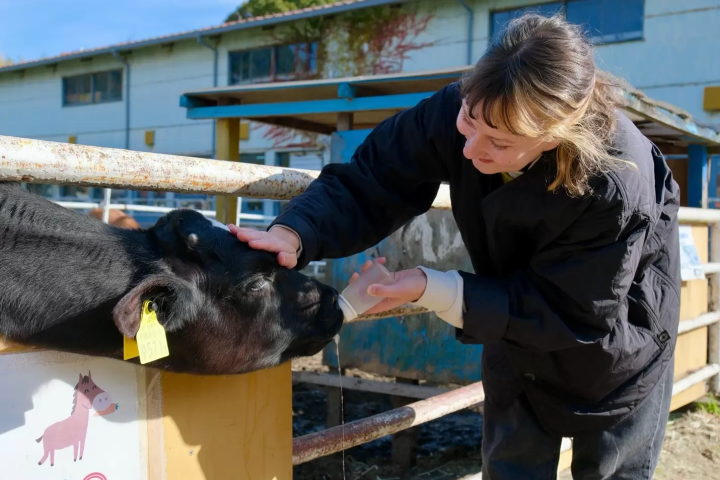
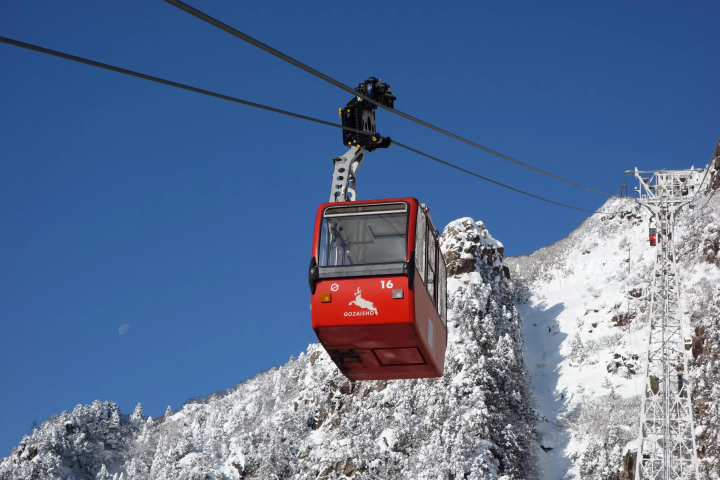
![[Kagoshima] Overcoming 12 Years of Hardship: Walking through Minamisatsuma City, the sacred land where the monk Ganjin landed](https://resources.matcha-jp.com/resize/720x2000/2026/02/21-259481.webp)
